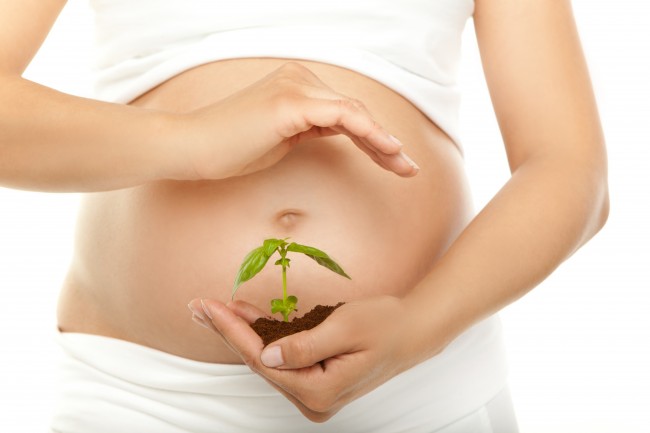Like antenatal classes or regular exercise, a good diet should form part of pregnancy preparations; to keep the body in shape and ensure mother and baby get all the nutrients they need. Choosing an organic pregnancy diet over regular produce can be a way to boost that nutrient intake, so may lead to a healthier pregnancy.
Improving health
Even if a nutrient-rich, healthy diet is already a priority, choosing organic foods can make a world of difference. Organic products use organic farming methods – meaning that they do not use pesticides, chemical fertilizers or chemical food additives, and foods are not irradiated for sterilization. As a result, organic foods are seen as healthier; they lack potentially harmful substances and contain higher quality nutrients.
Pregnant women have much higher demands for vitamins and minerals than normal, so diet is key for mother and baby to remain in the best health possible. An improved immune system, better sleeping habits and increased vitamin E levels are some of the associated benefits, and organic fruits and vegetables contain higher levels of antioxidants and beneficial minerals such as iron and zinc.
Not all organic products are superfoods
Just because a food is labelled ‘organic’, doesn’t automatically mean it’s healthy. Biscuits and sugary treats can still be organic!
The choice to eat organic products however shows a certain level of mindfulness of a healthy lifestyle – and most who choose organic are aware that balanced meals; fruits, vegetables and proteins, will be best!
Bear in mind that pregnant women may still need to take additional supplements within their diet, and should consult their doctor to find out what’s needed.
Reducing Risks
In addition to the health benefits, many pregnant women choose organic foods to reduce risk. Most mothers-to-be will already avoid or limit particular foods that could have harmful effects, such as caffeine or fish that may contain mercury.
Organic is seen as a lower risk because regular food production uses methods that organic farming does not – methods which may cause food to have less essential nutrients and a multitude of chemical residues from chemical fertilizers, insecticides, and herbicides. Chemical hormones may also be found in non-organic produce – not ideal for a body already undergoing a hormonal upheaval. Increased levels of chemicals and carcinogens can generally have a number of associated risks such as cancer, and in pregnancy, could contribute to miscarriage.
This is not to say that all non-organic foods are toxic and should be avoided though, far from it. A healthy diet, organic or not, is always preferable to processed, sugary, unhealthy foods. But choosing organic may have additional benefit, and less risk.
Better habits for life
In choosing to eat better food, many parents-to-be are creating good lifestyle habits to continue once their child is born.
An organic choice may also make an environmental difference. Many organic food markets source their produce locally, so in choosing local goods, carbon footprints can be reduced, seasonal living promoted and local farmers supported. Organic eating can build a better world for soon-to-be-born children.
Suzanne Gibbard is a mother to three and runs a business called Bundles of Joy which sells personalised christening gifts.
Latest posts by Contributor (see all)
- Video: Encouraging your baby’s developmental milestones - July 30, 2014
- Car Hijacking: Keeping your baby and toddler safe - July 30, 2014
- Preparing for baby – how much will the first year cost? - July 30, 2014
-
No Comments" href="https://all4baby.co.za/pregnancy/planning-for-baby/1476/preparing-baby-much-will-babys-first-year-cost/">

Preparing for baby – how much will the first year cost?
-
No Comments" href="https://all4baby.co.za/babies-6-12-months/health-hygiene-illness/1456/unblock-clean-babys-nose/">

How to unblock and clean your baby’s nose
-
No Comments" href="https://all4baby.co.za/pregnancy/nutrition-and-exercise/1435/omega-3-supplement-essential-pregnancy-lactation/">

Omega-3 supplement essential during pregnancy and lactation
-
No Comments" href="https://all4baby.co.za/pregnancy/planning-for-baby/1427/guide-buying-baby-furniture-small-spaces/">

Your guide to buying baby furniture for small spaces


 Saving...
Saving...